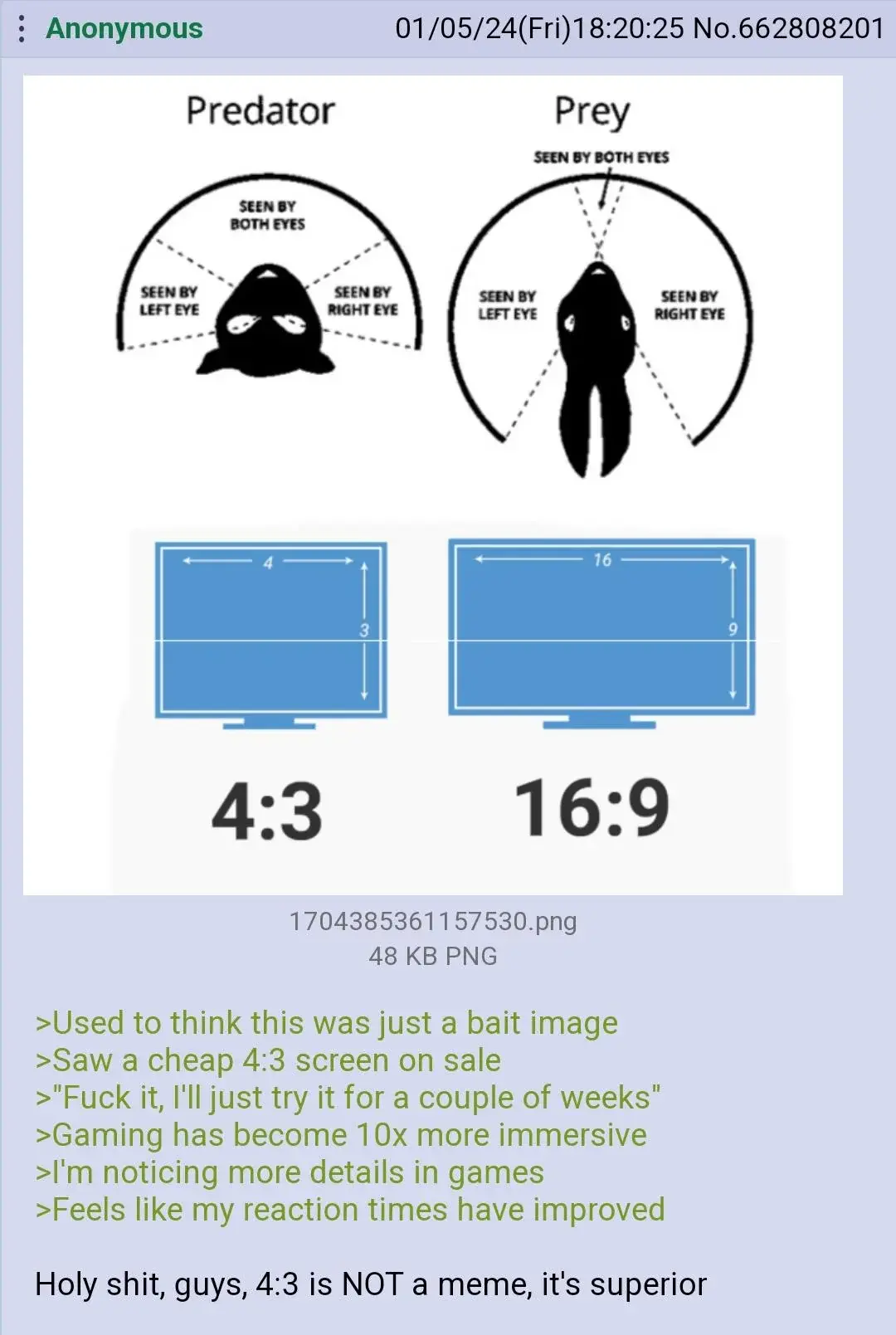this post was submitted on 09 Jan 2024
392 points (92.8% liked)
> Greentext
7394 readers
5 users here now
founded 2 years ago
MODERATORS
you are viewing a single comment's thread
view the rest of the comments
view the rest of the comments

Wouldnt this be the reverse, with the prey animal only being able to see a 4:3 with both eyes?
Screens don't require 3d vision
No, they see more of the sides to detect predators. Predators eyes are forward, narrow cone of vision
I wouldn't call it narrow. It's almost 180 degrees. More than enough for a 16x9 monitor
The point is how much you can see without moving your eyes.
Yeah we can technically see a pretty wide range but that's mainly peripheral. You can't really make out details unless you move your eyes to look directly at something.
Whereas prey animal eyes aren't supposed to be super detail oriented in the first place. So they can see more without moving their eyes to look directly at something because details aren't important.
okay but that has nothing to do with field of view, which is what the example is about.
It has everything to do with field of view... the region in which is you can resolve detailed information is very narrow, at only ~15º.
Agreed- the comparison is missing the blind spot in the middle.
That's how I read it. If a narrow screen helps you see the details, it stands to reason that the high resolution part of your vision is narrower. The diagram is pointing to the prey to want a narrow monitor to fit where their vision is best.